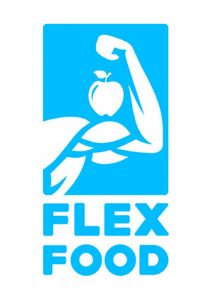31 Oct Why should I track my food?…….The basics of calorie control
Today’s blog comes from #TeamFlexFood athlete James Alexander-Ellis:
Bodybuilders have been doing it for decades. Weight Watchers addicts have been doing it for years too. Calorie counting, food tracking, macro counting – call it what you want, but it is not a new concept, and it is something that many of us dread. It is a sign of obsession for some, and a drain on our time.
So do you really HAVE to record your food intake to the letter, just to make progress with fitness?
In short……..No.
Does food tracking allow for more understanding and control, and therefore certainty and progress in your fitness plan?
Definitely….Yes!
Let’s work through an example. In my experience as an online coach this a very real scenario:

Mrs Bloggs wants to lose weight, and claims she has been trying for months (“eating healthy”) as well as reporting her food intake very loosely, suggesting a modest caloric deficit and relatively clean foods. She is mostly relying on creating a caloric deficit through her diet rather than burning extra calories with exercise.
Unfortunately because It is WAY easier to consume calories than to burn them, she regularly forgets about the handfuls of cashew nuts she munches on in the kitchen (70g a day over 2-3 handfuls) , the full fat milk (40ml per serving) and sugar (10g per serving) she puts in her coffee 4-5 times a day, the dressing on her salad etc.
Without even noticing, she has around 600 calories of extra carbs and fats every single day, on top of her allocated (and mentally recorded) 1500 calories.
Upon some simple investigation, Mrs Bloggs has an BMR of 1400 calories and based on her limited activity daily, has a suggested TDEE of around 1750 calories. In theory she would need a consistent calorie deficit (via food restriction in this example) of at least 150-250 calories a day to see much progress.
She thinks/guesses she’s eating in a modest calorie deficit because her 3 square meals roughly add up to 1500 calories, but she’s regularly eating 2000 calories. As we can see, she is actually eating a SURPLUS every day. No weight loss. In fact, she is puzzled by some weight GAIN.
Without even going into the individual Macros (macro-nutrients) and what they do/where they are found, let us understand about the basics of energy and thermodynamics:
A calorie is a measurement of energy, found in abundance within the foods that we eat. Upon consumption and absorption the energy is totally finite and must be either:
A: Used up / burned by our bodies
B: Stored by our bodies
We are in a constant state of flux here across a 24hr period, always storing OR burning energy.
There is no magic black hole where calories disappear, and no magic compartment where calories can appear from out of nowhere. When we understand this, we understand the concept of energy balance or the law of thermodynamics. This simply reinforces that in most cases, for most people: An excess of calories will cause a gain in tissue (“good” or “bad”) and a deficit will cause a loss of tissue. Calories are not sweated out either!

With this in mind, if we don’t have a VERY good system of monitoring our input (or output for that matter!) then over time we stand to lose control of our goals.
Imagine that you’re a little more experienced than Mrs Bloggs and have a much better idea of what you are eating each day. You eat the same thing day in day out, and you weighed and measured it all a few weeks ago – so now you eat the same thing and you know its around 3800 calories a day (sound familiar?). Just a 10% inaccuracy would be 380 calories discrepancy. That’s 40-60 mins of cardio.
Now – you wouldn’t “forget” about that extra Cardio session would you? I bet it would go in your training diary. Well so should the calories consumed be treated the same.
In short, if you are serious about your Goals, treat your food tracking like a successful businessman keeps financial accounts: Know what you have going IN as well as going OUT. Using an app like FlexFood can really help keep you on track!
If you achieved what you wanted you can look back and know which formula worked well for you. (Hell, even if you didn’t achieve it, you can look back and decide what DIDN’T work)
“If you can measure it, you can manage it”
Happy Food Tracking folks!
James Alexander-Ellis (WBFF Pro)
FlexFood & Sci-MX athlete
For info: www.jae-fitness.com




Sorry, the comment form is closed at this time.